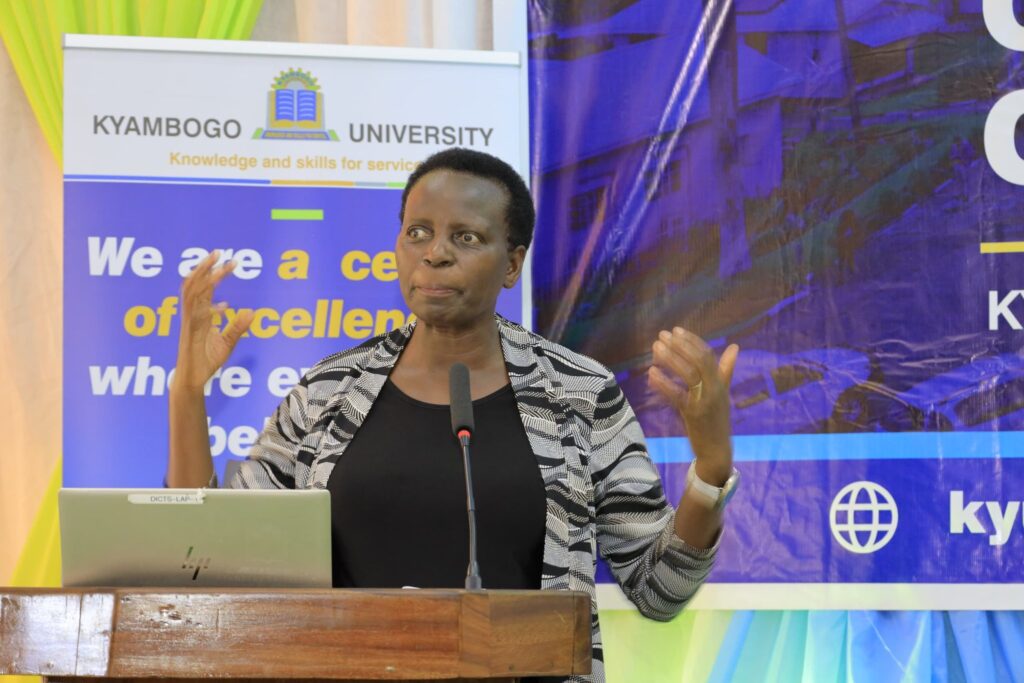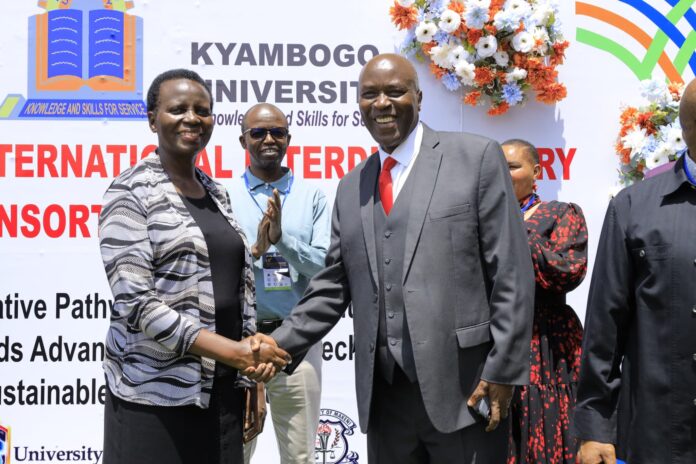Permanent Secretary ministry of Education and Sports, Dr Kedrace Turyagyenda, has emphasised government’s commitment to inclusive education.
She said the ministry has prioritised providing education for all learners, including those with special needs and disabilities.
“In the same spirit, we are working towards transitioning from the old school curriculum, introduced by the colonialists, to the new competence-based curriculum,” Dr Turyagyenda said.

She was officiating at the Kyambogo University 10th International Interdisciplinary Consortium Africa Conference,
three-day conference running from 5th to 7th November 2025 under the theme: ‘Innovative Pathways to Inclusive Education: Towards Advancing Knowledge, Technology and Sustainable Development’.
The conference brings together a consortium of seven universities from across the African continent. These include the host, Kyambogo University, alongside Mount Kenya University, the University of Makeni, Vincent Pol University, the University of Eldoret, and Kenyatta University, among others.
Turyagenda explained that the new curriculum should be prioritised at all levels of learning, from lower secondary to high school, so that students can finish their education as productive members of society.

Kyambogo University,Vice Chancellor Prof Eli Katunguka, revealed that the consortium was formed a decade ago to promote innovation and research.
“The consortium was formed to empower students with basic skills that can help them excel in scientific fields,” he said, adding that Kyambogo has postgraduate and PhD partnerships with the other universities.
Katunguka also expressed his support for the government’s push for a competence-based curriculum, arguing that the education sector has lagged due to a lack of practical skills among learners.

“I really believe if Ugandans adopt this preferred curriculum, it will promote value addition in many of the things people do,” he said.
On the issue of inclusive education, Katunguka said Kyambogo University was the best institution in the country for this.
“We will continue giving opportunities to all people to have education without discrimination,” he said.
Katunguka said Inclusive education in Africa is a growing priority, focusing on ensuring all children, regardless of ability or background, learn together in mainstream schools. While initiatives like those in Uganda are making progress, significant challenges remain, including lower completion rates for children with disabilities, lack of resources, and deep-seated cultural prejudices. Efforts involve policy reform, teacher training, community engagement, and leveraging technology to create more equitable education systems.


